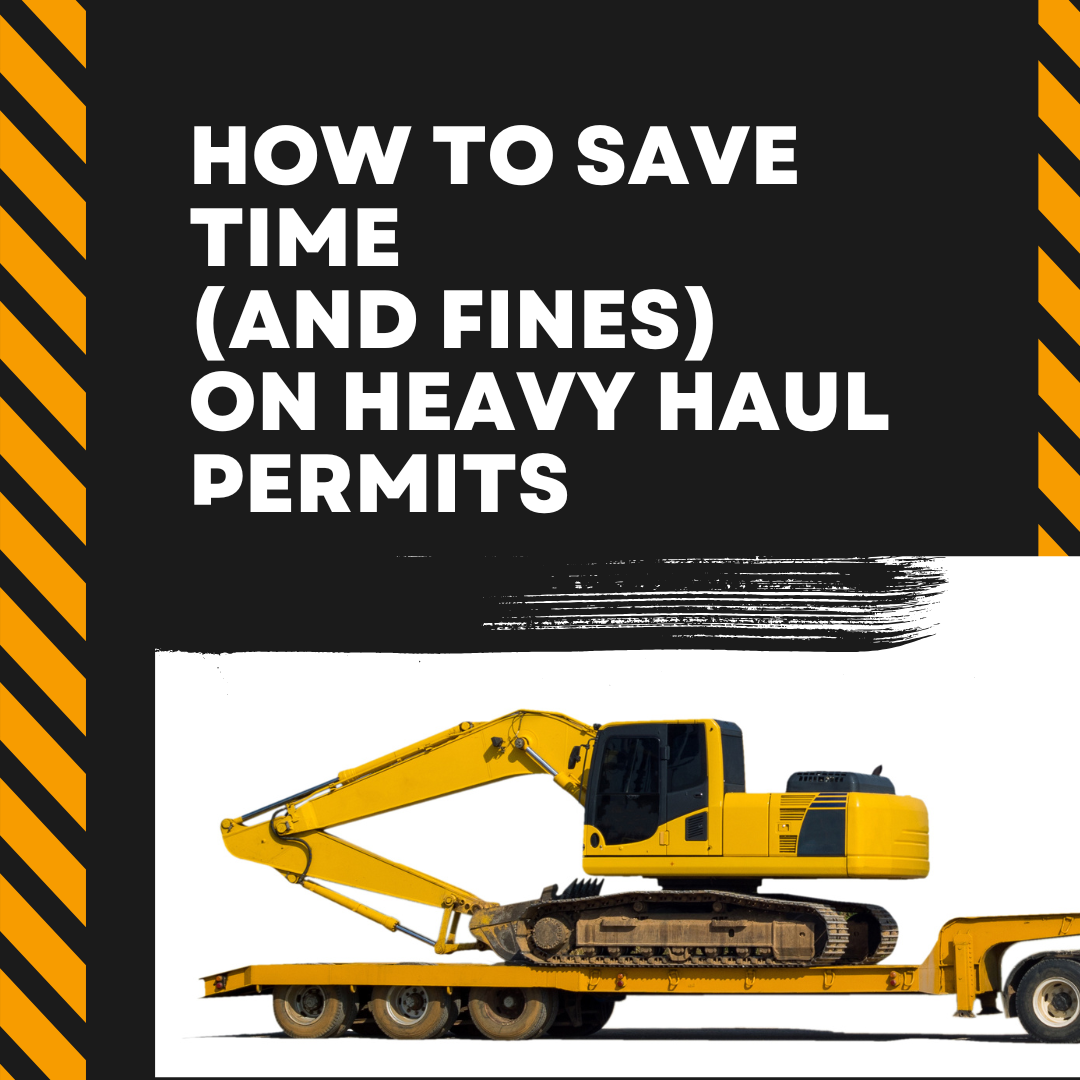Heavy Equipment Interesting Articles at HeavyEquipment.com
The Dirt Desk - Q&A
How to Save Time (and Fines) on Heavy Haul Permits
Moving heavy equipment isn’t just about horsepower and logistics — it’s also about paperwork. Every hauler knows the frustration of being ready to roll, only to be held up by a missing or incorrect permit.
Whether you’re hauling an excavator, dozer, or oversized load across the country, one mistake in your permit process can mean costly fines, downtime, or worse — having to stop your load until it’s corrected.
The good news? A few simple steps can keep your hauls legal, efficient, and on schedule — no matter where you operate in North America.
Why Heavy Haul Permits Are Essential
Every jurisdiction has its own limits for vehicle weight, width, height, and length. Those limits protect public roads, bridges, and the safety of everyone sharing the highway.
If your load exceeds the standard legal limits, you’ll need a special permit before you move.
Common types include:
- Oversize permits — for loads that exceed legal dimensions
- Overweight permits — for loads that exceed legal axle or gross weights
- Combination permits — for both oversize and overweight conditions
Skipping or misunderstanding these requirements can result in expensive penalties, route denials, or forced offloads.
Plan Your Route and Permits Together
A successful haul starts long before the truck starts moving. The most efficient haulers plan their route and permits at the same time.
Here’s why that matters:
- Not all roads, bridges, or tunnels allow oversize or overweight loads.
- Routes may have seasonal or construction restrictions.
- Travel times can be limited to daylight hours or certain days of the week.
Mapping your route in advance ensures your permit matches where you’re actually traveling — preventing detours, enforcement stops, or wasted miles.
💡 Pro Tip: If your haul crosses regional or national boundaries, ensure each authority along your route is properly covered in your permits.
Double-Check the Details Before You Apply
Incomplete or inaccurate applications are the most common reason for delays. Before applying for a permit, confirm that you have:
- Accurate measurements of width, height, length, and weight
- Verified axle spacings and load distribution
- Clear origin and destination details
- The correct dates of travel
Be sure to measure your load as it will actually travel — including any attachments, exhaust stacks, or tie-down gear. A small error in height or weight can result in a rejected permit or costly reroute.
Apply Early to Avoid Delays
Permit processing times vary depending on the route, complexity, and local regulations. While some permits are issued within hours, others may take several days to review.
Applying early gives you time to correct mistakes, confirm routing, and coordinate escorts if needed. Many haulers schedule permit applications as part of their dispatch routine — not as an afterthought.
Know the Travel Restrictions
Heavy haul permits often come with specific conditions that control when and where you can move:
- Daylight-only travel may be required for oversize loads.
- No travel may be allowed during weekends, holidays, or peak traffic hours.
- Weather and road bans may apply during seasonal weight restrictions.
Failing to follow these rules can result in immediate fines or being ordered to park until conditions meet permit requirements.
Stay Organized to Stay Compliant
Keep your documentation ready to show at any time. Enforcement officers may request:
- A copy of your valid permit (digital or paper)
- Proof of insurance and registration
- Escort or pilot vehicle documentation (if required)
- Proper signage, flags, and lighting on the load
Being able to produce accurate documents on the spot not only saves time — it builds credibility and helps avoid unnecessary inspections.
When in Doubt, Use a Permit Service
If you’re hauling frequently or dealing with complex loads, a professional permit service can be worth the investment. They know the regulations, understand routing systems, and can save you the hassle of paperwork and delays.
Even for experienced haulers, outsourcing permit management can help keep your operation efficient and compliant, especially when dealing with multiple regions.
The Bottom Line
Heavy haul permits aren’t just a legal formality — they’re the key to keeping your job on schedule and your operation profitable.
By planning ahead, double-checking your load data, and understanding the rules that apply to your route, you’ll save time, reduce stress, and avoid expensive fines.
No matter where you haul, the best operators know one truth:
A smooth move starts with a solid permit.

